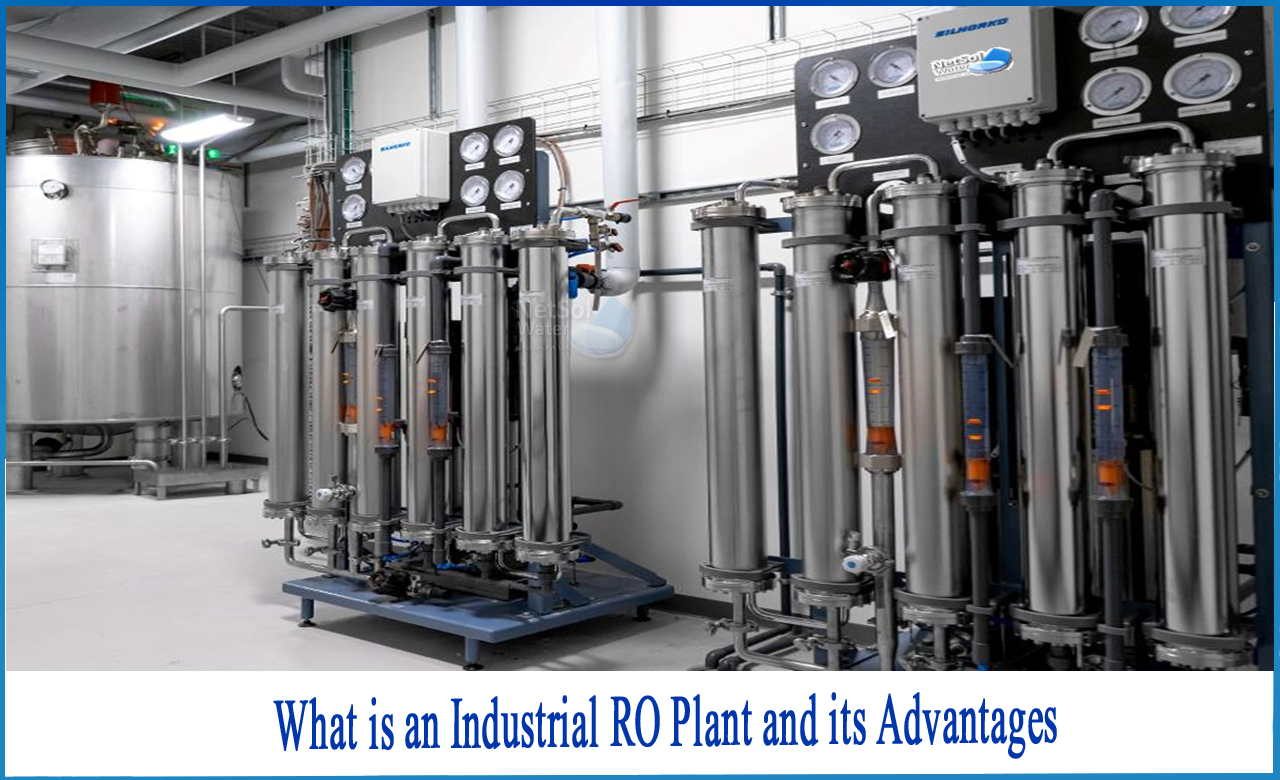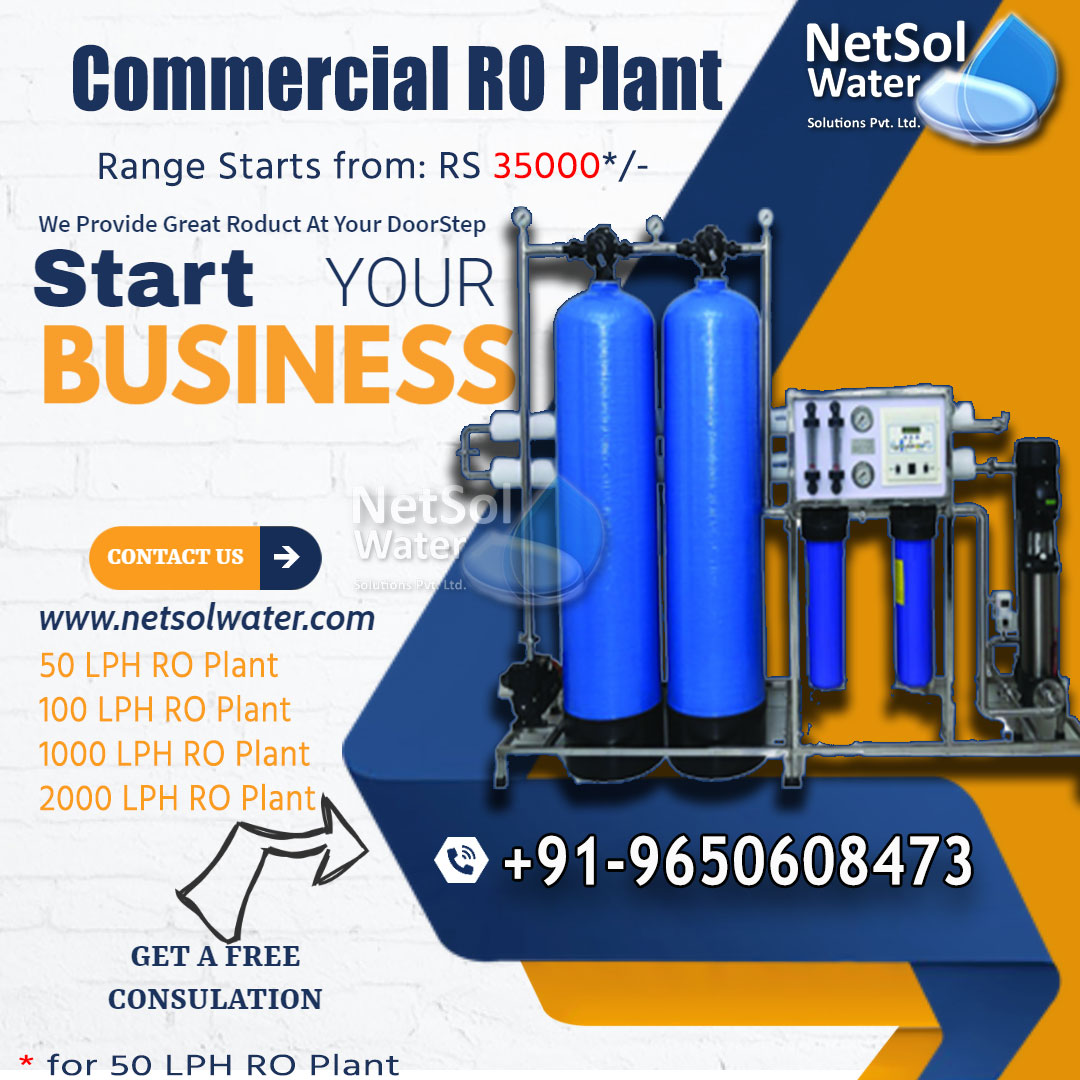What is an Industrial RO Plant and its advantages?
The Industrial RO (Reverse Osmosis) plant is an advanced technique that has proven to be a benefit for industrialists, restaurants, housing societies, and hospitals by supplying clean and filtered water for both production and consumption. They are highly recommended since they effectively remove up to 99 percent of dissolved sediments, pollutants, and impurities from water, ensuring that it is pure, safe, and clean.
A number of pre-treatment processes, such as softening, de-chlorination, and antiscalant treatment, are required for the Industrial RO Water Plant. Following the pre-treatment procedure, high pressure is utilized to force water through a semi-permeable membrane, which traps all impurities while allowing clean water to flow through. Energy levels are determined by the quantity of salts and pollutants in the water. To filter 1 cubic metre of water, an industrial Reverse Osmosis system uses 6 kilowatt-hours of power on average.
Advantages of Industrial RO Plants
1. Environmental Benefits
Less hazardous waste water is one of the key environmental advantages of employing a reverse osmosis system. This is because the permeate generation technique does not necessitate the use of any harmful chemicals. One of the most eco-friendly technologies for treating industrial wastewater is reverse osmosis. Another advantage of RO is that it captures and properly disposes of pollutants in the mains water supply.
2. Cost Benefits
The cost of employing reverse osmosis and membrane components is reducing, whereas the cost of acid and caustic solutions is increasing. The costly component of reverse osmosis systems is electricity. Modern water filtration systems have low operating costs since they require less energy.
3. Benefits to Health and Safety
One of the major health and safety advantages of using a reverse osmosis system to provide high-quality water is that no harmful chemicals are required. Traditional processes including as chemical treatment are replaced by reverse osmosis, which employs smaller, more efficient equipment.
Industrial RO Plants are in high demand because of the following other advantages:
1: It's simple to set up and maintain.
2: Reverse osmosis is a safe and effective method.
3: It eliminates ionic salts, colloidal particles, active and inactive bacteria.
4: It's a completely automated system.
5: The water collected from the plant is perfectly safe to consume.
Areas of Applications of Industrial RO Plants
The RO system aids in the purification of polluted water, which may then be utilized for a number of applications, including:
1: Desalination
2: Drinking water
3: Treatment of sewage
4: Contaminant concentration
5: Reclamation of dissolved minerals
Conclusion
The Industrial RO Water Facility is a high-tech manufacturing plant for purifying polluted water that is suitable for a wide range of industrial applications that require desalinated water. The plant must be properly monitored and maintained in order to avoid costly repairs and unpredictable maintenance and to produce high-purity water for many years.
If you're searching for an industrial or a commercial RO plant manufacturer, get in touch with Netsol Water. We have the experience and expertise to help you find the best RO system for your intended application. We offer different capacities for Commercial and Industrial reverse osmosis equipment’s and can help you find a system that will be both cost effective and efficient to utilize.




